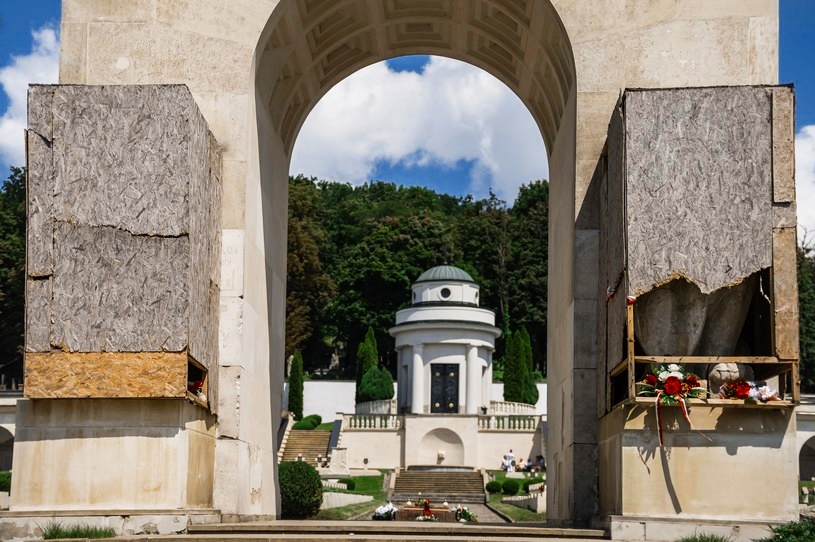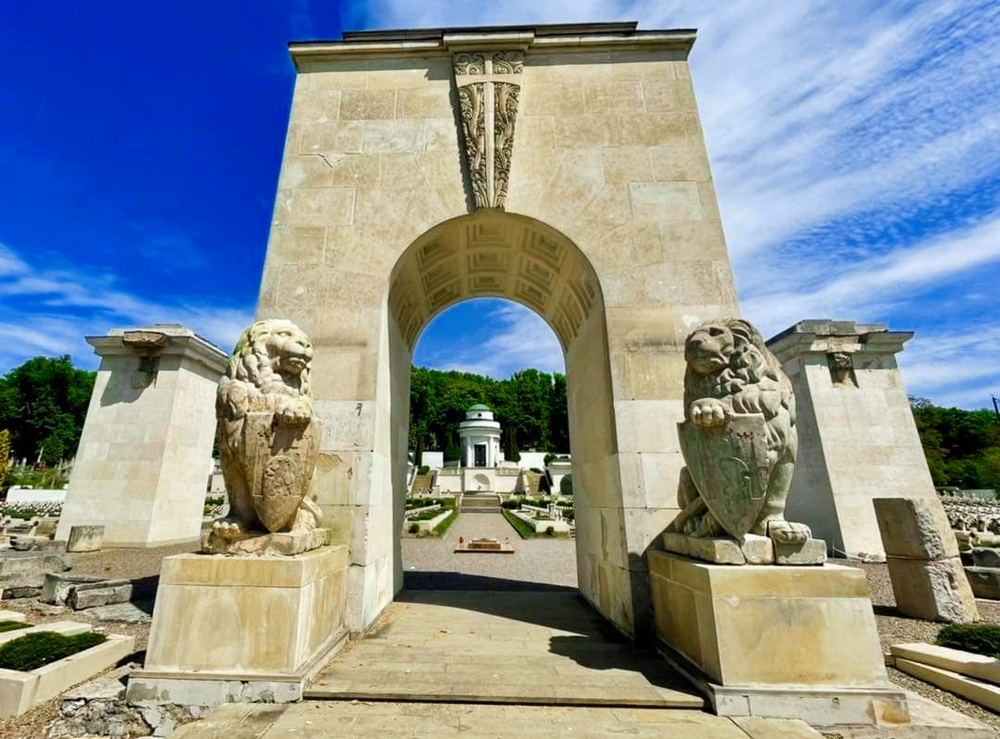Two statues of stone lions meant to commemorate Polish war losses, which were once boarded up in wooden boxes, have been put back on display at the Polish Cemetery of the Eaglets in Lviv.
“It is a touching, important moment. We are in solidarity with Ukraine in the defensive war against the Russian Federation,” wrote Piotr Gliński, the deputy prime minister and the minister of culture and national heritage.
The city of Lviv (Polish: Lwów – the city of lions) was for centuries one of the centers of Polish culture and science. Cemetery of the Defenders of Lviv, also known as the Cemetery of the Eaglets, is a separate part of Lychakiv Cemetery in Lviv.
Poles who died defending Lviv during the Polish-Ukrainian war (1918-1919) and during the Polish-Bolshevik war of 1920 are buried there. Lviv was a part of the Second Polish Republic and the Polish authorities decided to construct a memorial to the Poles and their allies who died in the 1918–1920 hostilities in that region. In Autumn of 1918, nearly 3,000 young soldiers, mainly boys, died defending the city against Ukrainian forces. They are buried on the Cemetery of the Eaglets, hence the name.
Statues of lions were removed from the necropolis by the Soviets from the Cemetery of the Eaglets in 1971 and returned there in 2015, thanks to efforts of the Cultural Heritage Foundation and the Polish Society for the Protection of Military Tombs.

In October 2018, Lviv Regional Council demanded the statues be removed, as it found them to be “a symbol of Polish occupation of Lviv.”
“Attempts to secretly set up statues of the Polish occupation of Lviv continues while Ukrainian statues on Polish territory are destroyed, which is taking place with the silent approval of Polish local authorities,” announced the council at the time. Until now, the statues of lions were covered with plank boards.






